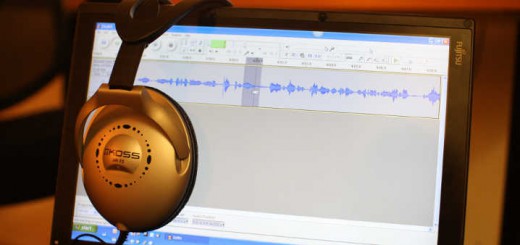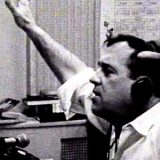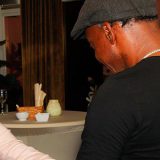Does Blogging Hold The Key To The Future Of Podcasting?
Here’s a post to put on your must-read list. It’s a thought-provoking article written by Joshua Benton for the Neiman Lab blog. Benton takes a look at the similarities between the evolution of blogging and the early life of podcasting. While blogging may resemble podcasting the way baseball resembles football, media has an evolutionary inertia that exerts itself regardless of the platform. That’s why Benton’s conclusions are not to be dismissed.
Professionalism
I came to podcasting with a radio background, so the underwhelming presence of not only professionalism but an interest in professionalism has long been a personal thorn in my side. It’s professionalism that’s the first item Benton calls out. He writes that while blogging began as a free-for-all mix of great content and junk (which he generously refers to as dross), the blogs that consistently drew readers (and advertisers, if that’s your way of keeping score) developed the professional feel of journalists and essayists. I’m no stranger to podcaster meetings and online comments where, time and again I hear and read, “Our content is so good people will put up with a little ________.” Fill in the blank with any number of terms, including, poor audio, lame production, random scheduling or lazy planning.
If that’s a refrain that frequently passes your lips, and you’re not in the porn business, you’re on the wrong side of media evolution. Perhaps if your podcasting aspirations stop at the level of hobbyist you’re free to experiment with all aspects of the form. As a century of amateur radio has demonstrated, hobbyists often source breakthrough ideas that go on to be commercial successes. But if you’re thinking of monetizing your podcast, working as a consultant or producing podcasting content for others, now is the time to get serious. What makes professionalism so critical is that it is the one thing, perhaps the only thing, in the future of podcasting under our control. We can choose to commit to it, and take an action every day, no matter how podcasting is buffeted by larger forces whose interests don’t coincide with our own.
Platforms
Benson points out that blogging began with its practitioners writing their own code, before arriving at where we are today: with a somewhat standardized blogging look and feel, largely driven by widely-available blogging platforms such as Wordpress and Blogspot. In its continuing evolution, however, there is evidence blogging is moving to Facebook. The Facebook platform is simple to use and more of what we used to call blogging we now call Facebook status updates. While the top blogging platforms might remain the roll-your-own variety (all the better to gather statistics to merchandise to marketers), blogging on Facebook, where there is only one set of numbers for hits, demographics and so forth, might be blogging’s end game. It would certainly simplify the lives of publishers and marketers.
Podcasting is still in its wild west phase. Podcasters rely on a few specialized host platforms, every-day ISPs and their personal owned-and-operated servers to reach their listeners. Nevertheless, Benson notes that podcasting is built on mp3 files. You’d be better off relying on a Ouija board for your listener data than trying to wring anything meaningful out of the mp3 file format.
Yes, I’m being hyperbolic. A Ouija board would be more accurate.
Benson suggests podcasting’s future, taking a cue from blogging, will include the development of new platforms that are marketer-friendly. And that opens the door to proprietary file formats that will, after the usual bruising, last-man-standing battle, coalesce into some sort of standard, be it Facebook or more open.
I hope so.
Podcasting is too iTunes dependent and, for the majority of podcasters, that means too devoid of the data we need to improve our product, let alone monetize it.
Preparation
On the exciting side, podcasting has a model of the future to work with. Blogging, and I suggest YouTube as well, followed a clear evolutionary path. If you can’t, as Xerox PARC scientist Alan Kay said*, predict the future by inventing it, at least you can look back in history and play the odds.
And, there’s always the Ouija board.









